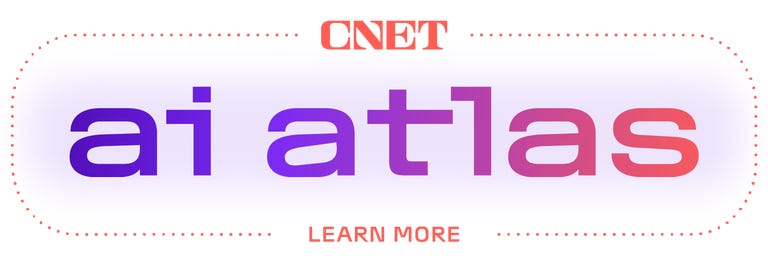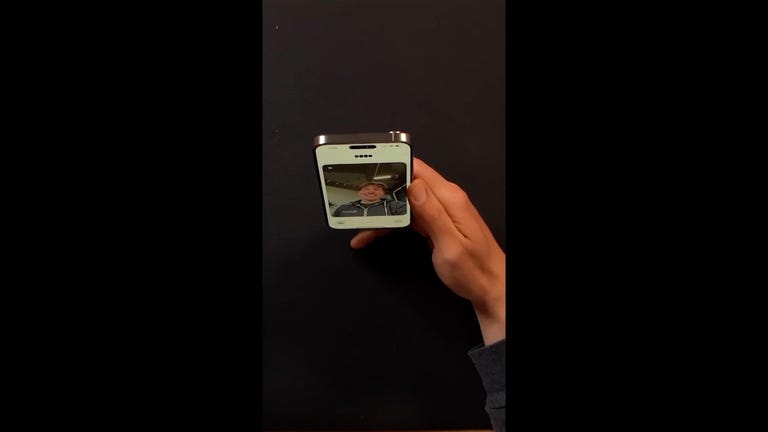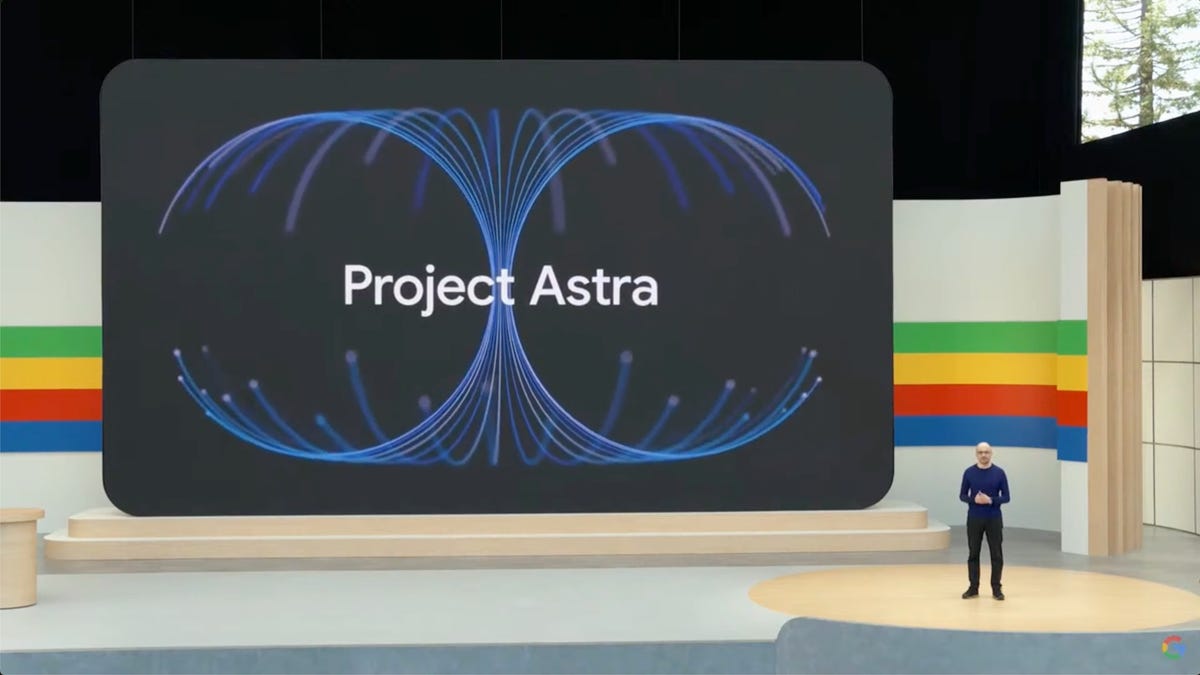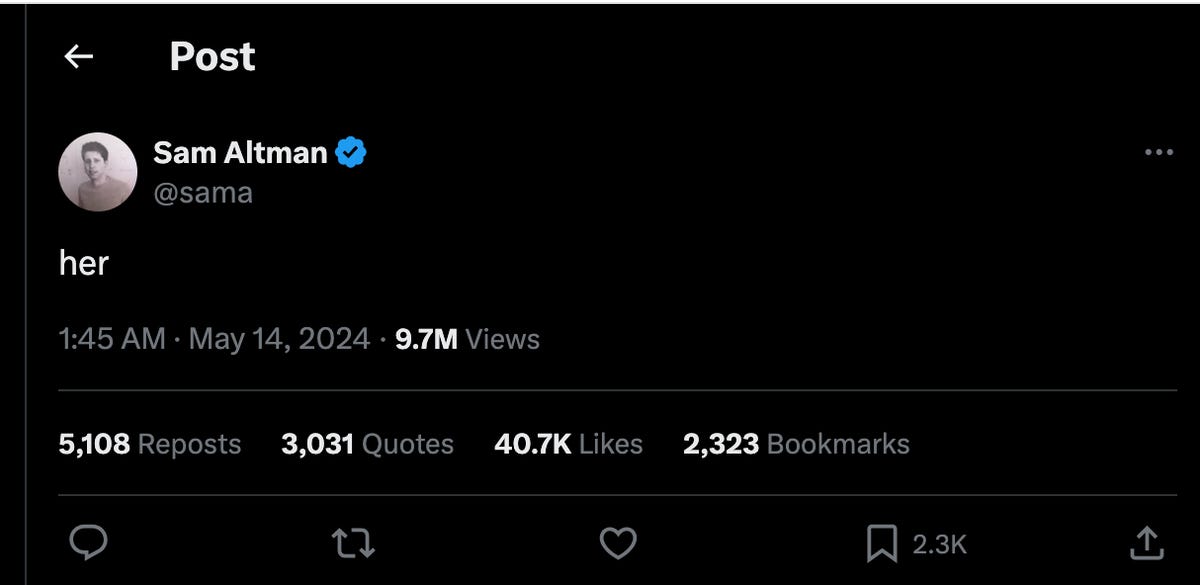Scarlett Johansson criticized OpenAI and founder Sam Altman on Monday, saying the AI company, which makes ChatGPT, created a new chatbot voice that sounded “eerily similar” to her own, after she declined to license her voice to the system.
“When I heard the released demo, I was shocked, angered and in disbelief that Mr. Altman would pursue a voice that sounded so eerily similar to mine,” Johansson wrote in a statement, published by NPR on Monday.

OpenAI showed off GPT-4 Omni (GPT-4o), its latest AI model, last week. The company demonstrated how the AI can converse in more human ways, complete with the ability to whisper, make sarcastic remarks and even flirt.
The demonstration of OpenAI’s virtual assistant quickly drew comparisons to Johansson’s character from the 2013 movie Her. In that film, directed by Spike Jonze, Johansson played Samantha, a virtual assistant that develops an intimate relationship with a lonely writer.
Read more: Microsoft Copilot Embraces the Power of OpenAI’s New GPT-4o

Watch this: Scarlett Johansson Says ChatGPT Sounds Like Her; OpenAI Removes Voice
On Sunday, OpenAI said it has suspended the use of its AI voice, called Sky, while it addresses questions surrounding the issue of its virtual assistant’s voice. Sky, which has been available since OpenAI launched ChatGPT’s voice mode last September, was one of five voices available with GPT-4o. In a blog post published Sunday, OpenAI said that it did not copy Johansson’s voice.
“We believe that AI voices should not deliberately mimic a celebrity’s distinctive voice — Sky’s voice is not an imitation of Scarlett Johansson but belongs to a different professional actress using her own natural speaking voice,” the company said. “To protect their privacy, we cannot share the names of our voice talents.”

Google unveiled its own real-time, multimodal AI assistant soon after OpenAI unveiled GPT-4o.
More from Google I/O 2024
Altman reiterated the company’s stance on Monday. The former OpenAI CEO said the voice of Sky was “never intended to resemble” the voice of Johansson, in a statement shared with CNET.
“We cast the voice actor behind Sky’s voice before any outreach to Ms. Johansson. Out of respect for Ms. Johansson, we have paused using Sky’s voice in our products,” Altman said. “We are sorry to Ms. Johansson that we didn’t communicate better.”
Read more: Best Phone to Buy for 2024
In her statement, Johansson accused the company and Altman of intentionally copying her voice. The American actor said that Altman had approached her in September to voice GPT-4o to help consumers “feel comfortable with the seismic shift concerning humans and AI,” adding that Altman said her voice would be “comforting to people.” Johansson, who declined the initial offer for personal reasons, said that Altman had approach her agent again days before the May event, requesting that she reconsider licensing her voice for a virtual assistant.

Sam Altman posted the word “her” on X in connection with OpenAI’s GPT-4o event.
“Before we could connect, the system was out there,” Johansson said in her statement. She added that she was “forced” to hire legal counsel, who have written to Altman asking for transparency on the process undergone to hire the voice talent.
In choosing an AI voice, OpenAI’s blog post said, the company narrowed more than 400 submissions from voice and screen actors to just five, whose voices it believed embody a set of characteristics including “an approachable voice that inspires trust,” “feels timeless” and is “natural and easy to listen to.”
The legal threat Johansson poses comes as OpenAI grapples with a series of copyright violations from creative industries spanning Hollywood as well as the broader media industry. In April, a group of eight daily newspapers took legal action against OpenAI and Microsoft, filing a lawsuit alleging copyright infringement related to the unauthorized use of their articles for training AI models.
Editors’ note: CNET used an AI engine to help create several dozen stories, which are labeled accordingly. The note you’re reading is attached to articles that deal substantively with the topic of AI but are created entirely by our expert editors and writers. For more, see our AI policy.

